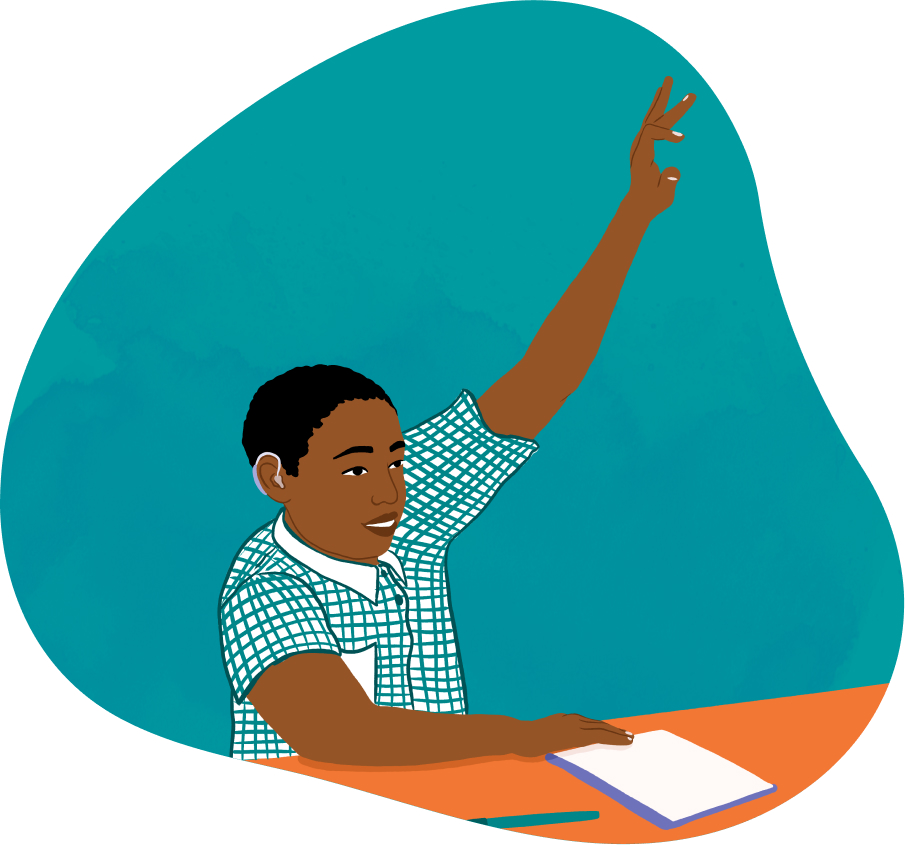Taking Stock & Sharing What We Know
We view learning as an iterative process in which our team—those who know the work best—ask key questions about how the work is unfolding. Program learning initiatives, critical reflection sessions and regular data reflection spaces allow for the iterative learning needed to strengthen our implementation.
A key focus of our practice-based learning is adapting program delivery: How can we widen our reach, either by providing direct support or by working with others? As recurring school closures continue amidst COVID-19, for example, we’re learning from our work to set up the digital infrastructure for mobile app-based routine learning and assessment at scale. We’re also assessing the influence and reach of our media campaigns highlighting the increase in violence against children during periods of crisis.
Our Learning from Practice Series collates many of these insights, articulating the “how-to” behind essential program components that are often overlooked. For instance, we unpack what it means to create an organizational culture for social justice activism (Paper 1), ways in which organizations can demonstrate solidarity in action (Paper 5) and considerations for designing programs that can simultaneously address violence against women and violence against children (Paper 7).
For a deeper dive into programming details, we created the Programming for Prevention Series to share tools and resources informed by direct experiences in safe and ethical programming, as well as to provide specific guidance around common implementation challenges.
Partnering for Robust, Action-Oriented Research
Our work with the London School of Hygiene and Tropical Medicine (LSHTM) is our longest academic collaboration, beginning in 2007. We are currently working with LSHTM to understand how young people navigate life’s challenges—most recently, COVID-19—in a longitudinal cohort study following more than 3,000 adolescents who participated in our Good School Study. We’re also collaborating with LSHTM to assess the Good School Toolkit’s secondary school adaptation and the strategy of using “resource persons” in scaling up the Toolkit.
Other ongoing research collaborations include:
- Partnership with IDinsight to develop Good School Toolkit Agile, a modular, streamlined version of the Toolkit, in preparation for our scaling efforts.
- Founding member of the Coalition for Good Schools, a community engaging in research and knowledge creation with an eye towards steering policy change.
- Engagement with the Children’s Institute at the University of Cape Town and the International Center for Research on Women to conduct an evidence review on preventing violence against children in and through schools in the Global South.
- Partnership with the University of Alabama to explore mental health concepts and develop content based on contextually defined needs and opportunities. We are currently building off this research to create a mental health module that can be used independently or alongside the Good School Toolkit in primary and secondary schools.
A Systematic Approach to Learning & Assessment
Acknowledging that everyone has a unique learning style and valuable insights to share, we use a variety of approaches to spark curiosity, hone our skills and evolve our organizational learning culture. We dedicate significant organizational time to internal learning, such as our “Learning Circle” series, where we take a deep dive into issues that are cross-cutting with our work, such as feminism and mental health. We also learn through ongoing staff development opportunities, weekly team meetings, seminars, longer retreats and workshops.
Organizational learning also requires consistency, structure and mechanisms to integrate findings in real time. We use an organizational learning and evaluation framework to rigorously track our work in progress and evaluate whether (or not) desired changes are materializing. Each team has a set of key learning questions that link to indicators, creative data-gathering tools that blend quantitative and qualitative information, and clear time frames. We regularly meet to identify emerging patterns together in our “Reflect and Act” sessions, culminating in detailed plans to propel this learning to action.
